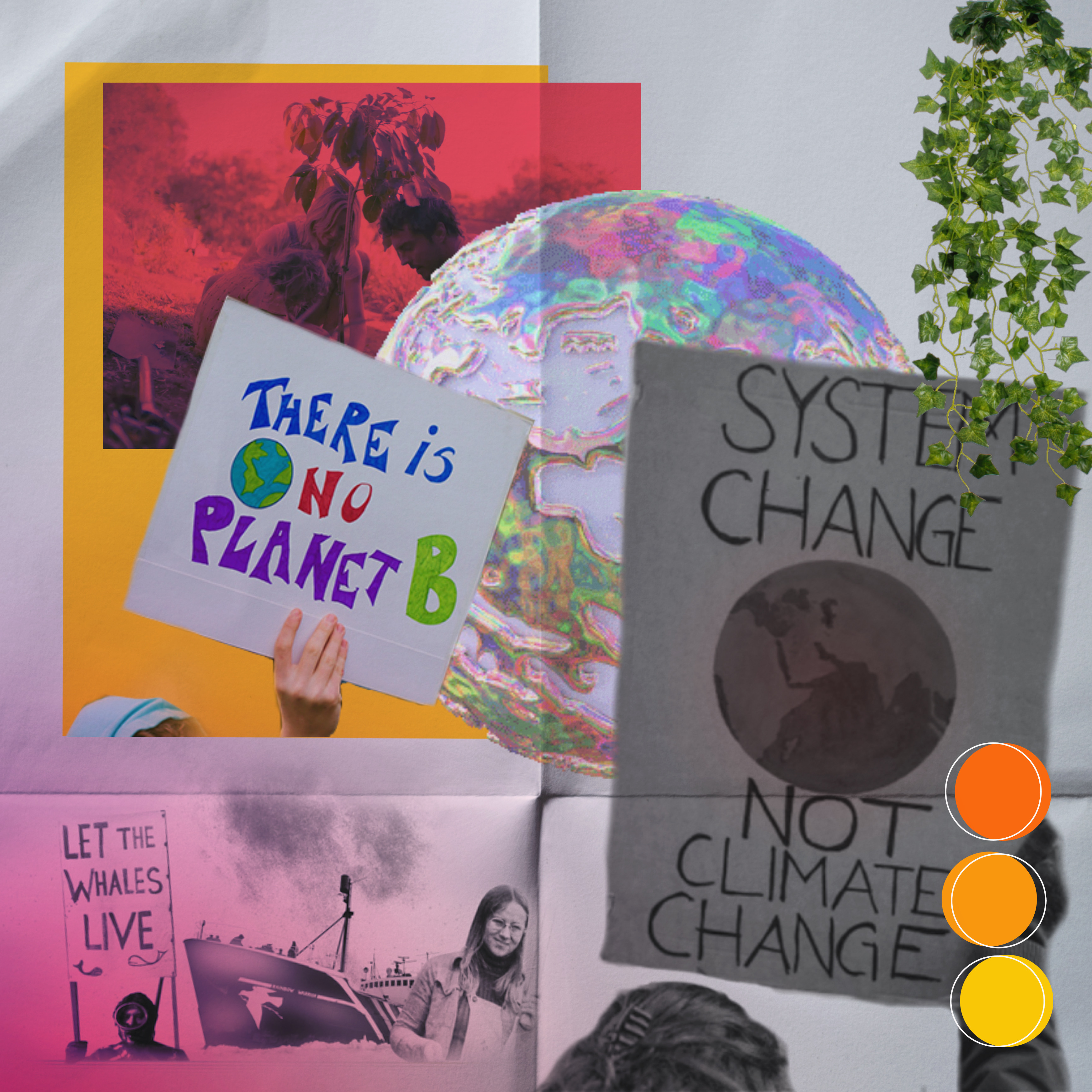Please visit response.fsu.edu for official FSU updates and resources.
2040: The Earth Has A Chance
 There is no more time for denying. Climate change is real and people around the world have already been feeling the consequences due to the inaction by those in charge. Evidence to support climate change is given in an abundance of ways, one being documentaries, like 2040, by Damon Gameau. Even if there was a lack of confirmed peer-reviewed scientific evidence, would you not rather veer on the side of caution?
There is no more time for denying. Climate change is real and people around the world have already been feeling the consequences due to the inaction by those in charge. Evidence to support climate change is given in an abundance of ways, one being documentaries, like 2040, by Damon Gameau. Even if there was a lack of confirmed peer-reviewed scientific evidence, would you not rather veer on the side of caution?
An argument ignorantly thrown around is how Earth’s climate has always been fluctuating. While this is true, there are massive flaws to this argument - one being that humans first appeared between 5 to 7 million years ago, a very short time compared to the 4.6 billion years the Earth has existed. Global warming is extremely relevant in current times, not just for research and for data collection, but because there will be an abundance of negative consequences for humans potentially leading to our extinction. In addition, climate change has not occurred this rapidly in millions and millions of years. There is no precedent set for humans on how to handle such a phenomenon, and so far, we have been handling it poorly. Unfortunately, most predictions of the future are entirely negative, and it is depressing. The internet and media are easily accessible today and negative stories take the forefront. Gameau, in his documentary, aims to focus on the solutions for some of these problems so a new vision, a more positive one, can be created for the future.
Climate change deniers pose a serious challenge. Even worse, they are fed incorrect information. Professional climate deniers want the public to believe they have credible sources when they do not. The denial is for personal gain. For example, companies like ExxonMobil will fund many different organizations to portray the idea there is a wide consensus that climate change is not real. However, since they are all funded by the same source, there is no such consensus. This creates confusion and angst among the general public, when some unfortunately believe different companies’ untruthful propaganda.
2040 is an amazing documentary that acknowledges the dire situation humans have put themselves in, however, the tone takes an optimistic standpoint as it aims to look at the future with a positive attitude. The documentary follows Damon Gameau, who looks hopefully to the future because he wants his four-year-old daughter to grow up in a better world than him. He travels globally, meeting different people and analyzing current solutions. One of my favorite parts is different children explaining their thoughts about the state of the Earth. It is adorable as well as comforting to see how smart, caring, and innovative they are. He emphasizes that the world can be healed solely with current technology, but this should not stop people from dreaming. If current solutions are implemented to their fullest extent today, how will our world look in two decades, 2040? The good news is the world is not at the point of no return, but the bad news is we are close and therefore have a lot of work to do to pull us out of this situation. We need zero emissions now, leading into negative emissions soon, because humans have pushed the planet too far. It is hard to fight a battle if you think you are going to lose, but the film reminds us the battle is not yet lost. There is still hope in this generation to make the world a better place for the next. Gameau does an excellent job of combining facts with fantasy which inspires the viewer. See this documentary free on cwtv.com.
As his daughter ages, Gameau is overwhelmed knowing she will be faced with a deteriorating world. The birth of the Industrial Revolution has ruined the natural carbon cycle by adding exorbitant amounts of carbon dioxide into the atmosphere, not to mention other harmful chemicals released into the air as well. The Earth’s processes are struggling to keep the amount of carbon stable, pertinent to human survival. Not just the atmosphere has been affected; more than 90% of excess heat and much of the excess carbon dioxide is being absorbed by the ocean, making it more acidic and reducing the nutrients in the ocean. Consequences lead to a lack of biodiversity and more intense weather events, which we know too well living through hurricane season in Florida. The vast ocean is a carbon sink, meaning it sequesters carbon dioxide. However, evidence shows the sea could turn into a carbon emitter because it is being forced to absorb so much carbon dioxide. Other negative consequences of climate change include melting of polar caps and glaciers, sea level rise, degradation of soil, increased wildfires, and so much more. Human industrialization is destroying the planet.
Gameau visits three countries: Bangladesh, the United States, and Australia. Bangladesh has one of the largest solar home system markets in the world. Each house in a neighborhood, let us say, can be connected on a microgrid and then each microgrid can be connected to one another making the network stronger and more reliable. This not only empowers the individual and keeps money within the economy, but also is more dependable than a centralized grid. Especially in Bangladesh, where floods and other natural disasters are frequent, a decentralized system allows the people to not have to rely on the government for electricity. Next, Gameau visits the U.S. In the U.S., road vehicles contribute to 20% of emissions. One solution along with public transportation and walkable communities is on-demand driverless vehicles. Crazily, 2/3 of L.A. is just parking space and roads. The possibilities of what could be substituted for these spaces are endless. Even if there are jobs lost here due to the transportation sector shrinking, other doors will be opened. Less cost for transportation deducts from the total yearly costs. Once in Australia, he speaks with Col Seis, a farmer that developed a unique way of farming in the late 90s. This is regenerative agriculture. He now helps farmers use plants to pull CO2 from the atmosphere and put it in the soil. The constant plowing of soil releases so much CO2 it degrades the soil, which in turn adds to climate change. This is known as one of many “positive feedbacks” In science, which is common in Earth’s processes that throw systems out of equilibrium, but negative feedbacks helps bring it back to the status quo. Humans have caused too many and too intense positive feedbacks, so negative feedbacks can no longer keep up.
Towards the end of the film, one solution stands above the rest. “The number one solution to reversing global warming is the empowerment of girls and women.” Educating women around the world and family planning will help save the planet. The longer women are in school, have access to good reproductive health services, and appropriate work opportunities, they can delay having children and thus will have less. This is not a commentary there are too many people living on our planet. It is the allocation of resources, not the number of people, proving problematic. But it is important to recognize that as the population continues to exponentially grow, it will increasingly become a bigger issue. Equal empowerment of women will be a huge accomplishment. Women get a better life and there is less competition due to a lower population.
There is no question it is hard to do the right thing in today’s world. This, on its own, discourages people. It is difficult to think about how hypocritical we are. Most people want to ignore how they are contributing to the problem, but this only makes the problem worse. Awareness of our resources and what we can do will have a significant impact on working towards fixing the problem. Instead of reacting, which is the government’s idea of a good plan in many areas, we need to be proactive to mitigate any negative consequences. No one wants to be a hypocrite; therefore, it is time to challenge those who continue to make us rely on fossil fuels. Countries and citizens need to work together to bring solutions to a more massive scale and reduce the effects of climate change.
The film shows extremely well that even a singular average person can make a difference. It is fulfilling, it gives the viewer hope. The documentary overall is interesting, informative, and a breath of fresh air compared to the depressing and grueling news heard every day. There are so many people who want a better future and are willing to fight for it as hard as they can, and we have everything we need to make this happen right now. This documentary helps you open your eyes past all the negativity to see incredible reason for hope, innovation, imagination, and creativity in a heartfelt touching story.
---
Our very campus at Florida State University strives to be a sustainable campus. Great resources are provided for those who are interested in getting involved in helping the community and contributing positively to the cause of climate change. There are many clubs and programs that help to facilitate this goal such as Environmental Service Program and Sustainable Campus. In addition, there are many campus initiatives to try and reduce the mark FSU and its students have on the planet. One of my favorites is the Green Building Initiative. Right now, FSU has over one million certified square feet of green buildings.
Written by: Maria Assimakopoulos
Art by: Meg Cabras



